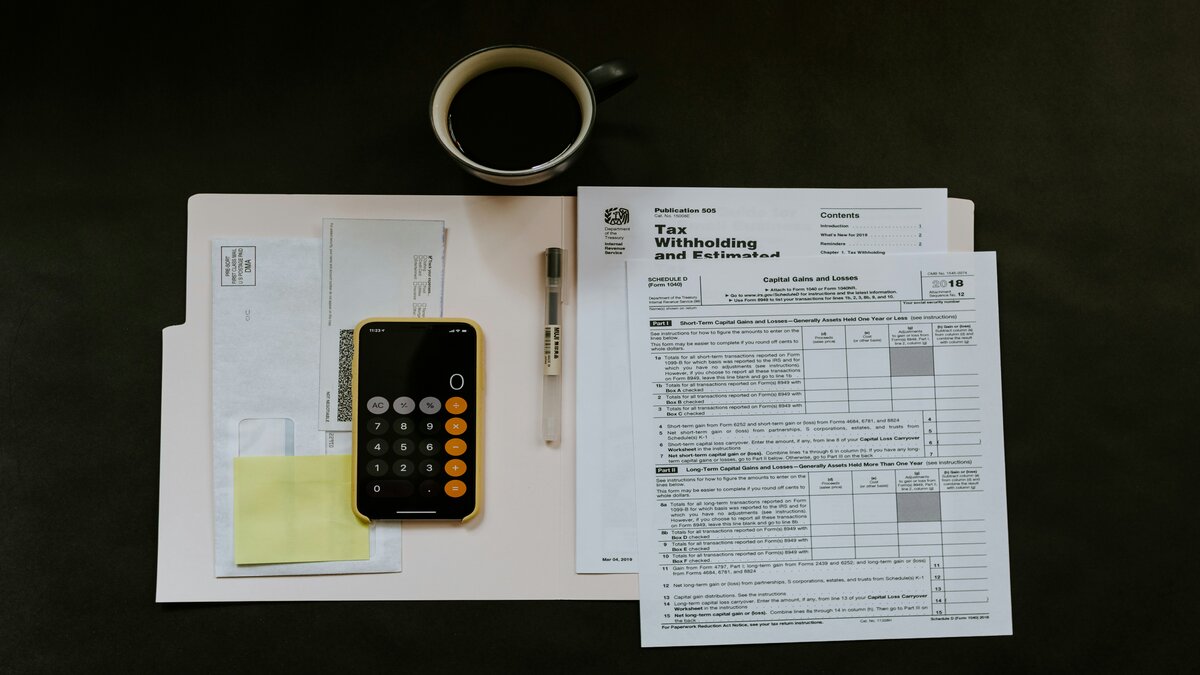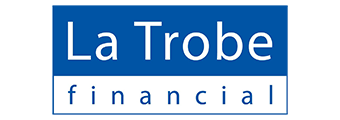Demonstrating proof of income as a conventional employee is as simple as providing your lender with your most recent payslips. For self-employed borrowers, however, the process can be more complicated.
Being self-employed likely won't be a major issue - lenders want your business after all - but proving you earn enough money to pay back a home loan can be more arduous.
Lenders often impose stricter requirements for self-employed borrowers and they typically need more documentation to be satisfied a borrower doesn't represent an unacceptable credit risk.
Are you self-employed?
A self-employed person works for themselves rather than an employer. You might be classed as self-employed if you're an independent contractor, a business owner, or a 'gig' worker. In the eyes of the Australian Taxation Office (ATO), you're self employed if you own a business that's registered as a sole trader, partnership, company, or trust and you're a director of or shareholder in the business. Contractors are considered self-employed if they make contributions to their superannuation and manage their PAYG obligations themselves.
Can it be harder to get a home loan if you're self-employed?
If you're self-employed, you might find it harder to get a home loan as lenders might consider your income less reliable. If you're a full-time employee, there's a legally enforceable contract between you and your employer - lenders know your boss has to continue paying you or go through the process of terminating that contract.
If you're self-employed, however, future income isn't guaranteed in the same way. For that reason, lenders tend to thoroughly scrutinise self-employed peoples' mortgage applications to ensure they'll be able to consistently meet home loan repayments.
There are a few extra considerations for self-employed borrowers to take into account when searching and applying for a home loan:
1. Lenders will want to know how long you've been self-employed
Some lenders have minimum requirements for how long an applicant has been self-employed in order to be approved for a home loan. Many prefer the applicant's business to have been operating or trading for at least two full financial years.
However, some lenders have more flexible criteria and might consider mortgage applicants with a shorter period of self-employment, especially if they have a good credit history, substantial savings, or can show the business is in a solid financial position with strong income.
Tip: Lenders may also view those who previously worked in the same industry before becoming self-employed (for example, an electrician might have recently gone into business for themselves) to use past payslips and references to supplement their application.
2. Inconsistent income could prove troublesome
While employees typically receive the same wage packet each week, self-employed borrowers often find their income fluctuates.
An air conditioning repair person, for example, might find business surges from November to March and they're significantly quieter during the cooler months. This can make it harder to prove a stable financial position and may mean a lender asks for more information.
3. You might be offered higher rates and more fees
As self-employed borrowers are often perceived as a higher risk to a lender, they might be offered higher interest rates or additional fees than employed borrowers.
4. You could face more scrutiny
Self-employed borrowers often undergo more rigorous assessment when applying for a home loan. Lenders might require additional documentation, such as profit and loss statements, business bank statements, or GST returns, to assess the health and stability of their business.
Read more: How to improve your chances of being accepted for a home loan
How much of a deposit do I need for a self-employed home loan?
A self-employed borrower may need a larger deposit than someone with a regular PAYG income. For those who run their own businesses, lenders typically require a deposit of at least 20% of a property's value. This is primarily due to the perceived higher risk associated with self-employed income.
Income verification for self-employed home loans
There are a range of documents lenders might ask for in place of payslips to verify the income of a self-employed home loan borrower. Below are some of the most common, but it's not an exhaustive list.
Depending on the situation, lenders might ask for other details and documents, so if you are self-employed and think you might be in the market for a home loan at some stage, it pays to keep your financial records up to date.
ABN registration
Lenders will often want to have a look at the Australian Business Number (ABN) details of your business. This is usually to verify how long the business has been trading for. Lenders might be apprehensive about whether your income will be consistent in the long term if you've only been self-employed for a couple of months.
Personal tax returns
Another handy way to demonstrate income is to simply show your lender what you've declared to the ATO. This demonstrates your annual earnings as well as your financial stability.
Business Activity Statements (BAS)
Quarterly Business Activity Statements can prove your quarterly gross trading income, as well as capital and non capital purchases. This can be a great alternative if you're behind with lodging your tax returns or if your past income doesn't accurately reflect your current trading situation.
Accountant's declaration
If your accountant prepares your quarterly BAS returns and management accounts, they'll be in a pretty good position to assess your current trading situation. An accountant's declaration will likely include how long they have been your accountant, verify the amount of income you have declared, and agree that to the best of their knowledge, this amount is reasonable and accurate. They'll also acknowledge they're not aware of any factors that could affect your ability to meet home loan repayments.

Picture by Kelly Sikkema on Unsplash
Home loans for self-employed people
With estimates suggesting more than 10% of the Australian workforce is self-employed, there's a lot of potential business for lenders offering home loans to those who work for themselves. Accordingly, many of Australia's largest banks have special provisions that make it as simple as possible for budding self-employed home owners to get a mortgage.
Big four banks self employed home loans
The big four banks hold almost three quarters of all the mortgages in Australia and have special provisions to make it easier for self employed borrowers to apply for a home loan.
CommBank
CommBank offers a simplified income verification process for eligible self-employed borrowers. Borrowers need to provide one of the below:
-
Most recent personal tax return and Notice of Assessment
-
Six-month salary credits to an account
-
One payslip showing > six months YTD income
-
One payslip showing < six months YTD income and most recent financials year PAYG Payment
-
Summary/'Tax ready' Income Statement or Tax Return
This needs to be supplemented by a letter from an accountant advising the business has sufficient profits to meet the business commitments and that the business has traded profitably for the past two years.
Westpac
Westpac's Fast Track assessment process requires the following:
-
Applicant must have been self-employed for at least two years
-
Must have a deposit of at least 20%
-
Can't be relying on any other source of income other than that shown in the Notice of Assessment
-
Must provide two years of personal ATO notices of assessment
NAB
Business owners and self-employed borrowers looking for a home loan with NAB can contact its team of Business Experts. NAB says these specialists will treat every application differently and take a holistic approach to assessing the position of the business when coming up with a tailored home loan.
ANZ
ANZ also offers a streamlined self-employed income verification process for those who've been paying themselves a regular company wage for at least six months. To apply, you'll need the following:
-
A valid ABN/ACN registered for at least 18 months
-
A payslip dated within 60 days
-
Your most recent ATO income statement with YTD salaryIf this spans less than six months, you will also need to provide the previous year's income statement
Low Doc Home Loans
If you're unable to provide the documentation required for a traditional mortgage, many lenders offer low doc home loans that demand less stringent requirements to demonstrate income. This can be particularly useful for those who have been self-employed for less than two years.
Low-doc loans still require some evidence of income and financial stability, and also might have higher rates and fees than equivalent products.
If you're in the market for a low doc home loan, here are some of the market's most competitive products:
| Lender | Home Loan | Interest Rate | Comparison Rate* | Monthly Repayment | Repayment type | Rate Type | Offset | Redraw | Ongoing Fees | Upfront Fees | Max LVR | Lump Sum Repayment | Extra Repayments | Split Loan Option | Tags | Features | Link | Compare | Promoted Product | Disclosure |
|---|---|---|---|---|---|---|---|---|---|---|---|---|---|---|---|---|---|---|---|---|
6.59% p.a. | 6.77% p.a. | $3,190 | Principal & Interest | Variable | $10 | $1,325 | 80% | |||||||||||||
6.49% p.a. | 6.75% p.a. | $3,157 | Principal & Interest | Variable | $0 | $995 | 70% | |||||||||||||
6.29% p.a. | 6.57% p.a. | $3,092 | Principal & Interest | Variable | $295 | $0 | 85% |
Photo by Chalo Garcia on Unsplash
Collections: Home Loan Basics Guides & Articles







Share